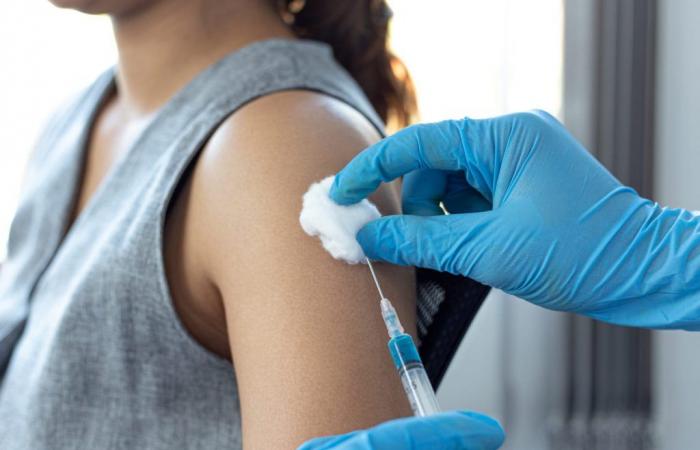To be truly protected against whooping cough, you must have had your boosters.
A rather discreet bacterial disease in recent years, whooping cough is experiencing a resurgence in France in the first half of 2024. After a first alert from Public Health France in April, data from the Directorate General of Health on June 7 confirms the resurgence of the disease in the territory with nearly 7,000 positive PCR tests (compared to 518 for the whole of last year) including 46 cases in children under one year old. More than twenty clusters in communities (mainly nursery and primary schools, daycare centers and nursery homes, middle and high schools) or families have been reported. The number of hospitalizations for whooping cough after going to the emergency room was also multiplied by 7 between mid-March and early June. This sharp increase in the number of cases is also observed at the European level with more than 32,000 cases in the first quarter alone (compared to 25,000 for all of 2023). In this context and in anticipation of the summer period and the large gatherings planned for this summer, particularly during Olympic Gamesit is more than necessary to be up to date with your vaccinations.
A catch-up possible up to age 40
Whooping cough is a bacterial infection that causes frequent and prolonged coughing fits. It is very contagious. Much more than chickenpox and as much as measles. It is transmitted by air, in particular by droplets of saliva emitted when coughing, mainly within a family or community. In addition to prevention measures (wearing a mask, washing hands, etc.), the best protection remains vaccination:
► She is obligatory in all infantsborn from January 1, 2018, from 2 months. It is the potential seriousness of whooping cough in infants that justifies starting vaccinations at this age.
► She is recommended for mothers during pregnancy and each pregnancy preferably between the 20th and the 36thweek after the last period. The doctor must check the mother’s vaccination status and consider a booster if necessary during each pregnancy, regardless of the mother’s age.
► She must be considered for people not vaccinated in the last ten years, and in particular for:
- members of the family circle (brothers and sisters, spouse, grandparents, babysitters, etc.) of a pregnant woman, if she was not vaccinated during pregnancy or if she was vaccinate less than a month before giving birth;
- the mother who has just given birth if she was not vaccinated during pregnancy, even if she is breastfeeding her child.
The vaccination schedules are as follows:
>> For infants and children up to 13 years old: compulsory primary vaccination at the age of 2 months, 4 months and first booster at 11 months (3 doses). This pattern should not be postponed. Subsequent boosters at 6 years old and between 11 and 13 years old.
>> For adults:
- Booster at age 25: 1 dose of combined vaccine containing whooping cough vaccine (except in the case of whooping cough vaccination less than 5 years old). If this reminder has not been carried out at age 25, it can be done at any time between 26 and 40 years old.
- At the age of 45 and 65 in a professional context only: nursing staff, in EHPADs, maternity wards, neonatal and pediatric services, early childhood staff including childminders and people regularly carrying out baby- sitting, medical and paramedical students.
- Possible reminders as part of the cocooning strategy, to be done on a case-by-case basis.
To find out if you are up to date, simply look in the health record (paper or electronic). Normally, all vaccines are listed there. If in doubt, consult a doctor, nurse, midwife or pharmacist who can check. The whooping cough vaccine is combined with that against diphtheria, tetanus and poliomyelitis (tetravalent), Hib meningitis (pentavalent) and hepatitis B (hexavalent). It can be prescribed and administered by a doctor, a midwife or a pharmacist or nurse for people over 11 years old. It is covered at 65% by Health Insurance, the remaining amount is generally reimbursed by mutual insurance companies. It is sold under the names: Tetravac-acellular®, Infanrix Tetra®, Repevax®, Boostrixtetra®, Infanrix Quinta®, Pentavac®, Hexyon®, Infanrix Hexa®, Vaxelis®.






